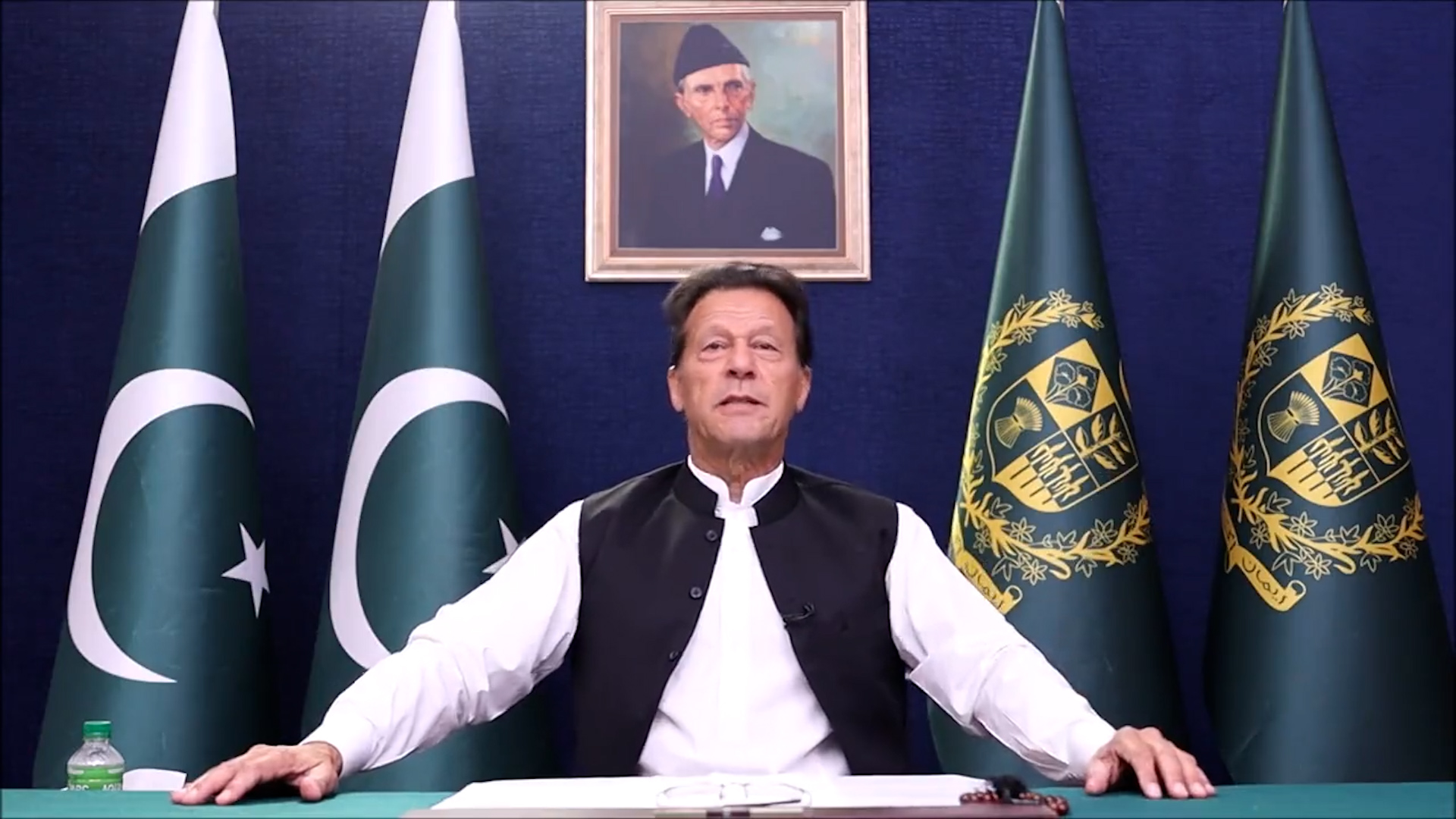NEW DELHI: Luck has not favoured Imran Khan to retain his incumbency as the Pakistan Prime Minister following a no-confidence vote held on Saturday night. The no-confidence motion brought against Khan secured the support of 174 members in the 342-member assembly, more than the required 172 votes to unseat him. Ruling PTI members walked out of the assembly during the vote.
No Prime Minister of Pakistan has ever finished their five-year term since the state was carved out of India in 1947.
The 69-year-old cricketer-turned-politician and PTI leader assumed office in 2018.
Outside parliament, the military exercises its mighty role. Imran Khan’s tenure was often termed as a “hybrid government”, due to the massive support of the Pakistani Army, but a report by the BBC cites the role of the military in dethroning Imran Khan. Prime Minister Imran Khan held an emergency meeting of the cabinet, along with his advisers.
The speaker and deputy speaker of the house, and some bureaucrats were also present in the meeting. The cabinet meeting approved the release of the alleged cable to some officials, which former Prime Minister Imran Khan said contained details of a US plot to overthrow his government, BBC reported.
Earlier Imran Khan alleged the US for its attempts to dethrone him. Khan even said of horse-trading by foreign powers to dethrone him.
According to a recent BBC Urdu report, two guests also reached the Prime Minister’s House by helicopter, surrounded by extraordinary security and well-armed men and met the Prime Minister in private for about a quarter of an hour. It is unknown at this time what he will do after leaving the post.
Imran Khan had ordered to dismiss General Bajwa at the PM House Cabinet meeting, following Faiz Hameed, Commander of XI Corps of the Pakistani Army. But suddenly a helicopter arrived carrying Nadeem Ahmed Anjum, DG of Pakistan’s intel agency ISI and another person, whereas Imran Khan was expecting his appointee Faiz. The two military generals along with heavily armed men took aside Khan.
Imran Khan was waiting for the helicopter but his guesses and expectations about the passengers of this helicopter proved to be completely wrong. The notification was challenged at the same time this was happening at Islamabad High Court as illegal for misuse of power by PM Imran Khan. Soon after this, an order was issued to unseat Prime Minister Imran Khan from office.
Speaking to The New Indian over the telephone, Munir Ahmed, an Islamabad based Political Analyst said, “Everything happens with the consent of the Military. Nothing can occur without their consent. So was the No-trust motion. Imran Khan was not doing well in terms of Foreign Policy as well as domestically. Many things need to be learnt from other countries. For example, India has strategic relations with the US as well as Russia at the same time. But no one challenged India or put pressure not to club with the other.”
“Pakistan relies on the US a lot in terms of grants and funds. But the US was never supportive or honest when a crisis emerged in Pakistan,” the political observer added.
“Imran Khan is very rigid and stubborn. He needs to consider certain facts as it develops,” Munir Ahmed, who once supported PTI to run a campaign in 1996-97, told The New Indian.
Speaking to The New Indian, a political and defence analyst, who and Imran Khan are familiar with each other for over ten years said, “Imran Khan was leading a weak government. Now the entire country has turned to his side. He will come back with a very strong majority, so he can do major reforms. Elections are just a few months away.”










